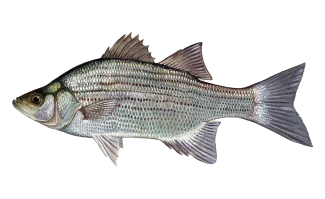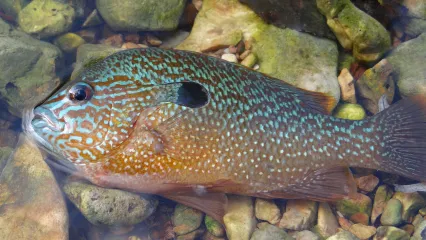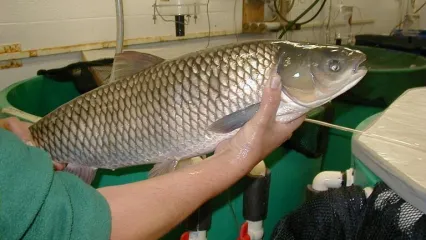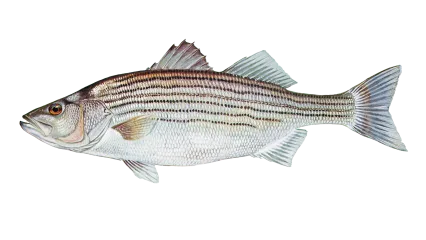
Description
Although native to Oklahoma, white bass were not found in great numbers until large reservoirs were constructed. Now they are found statewide.
The white bass can be identified by the distinctive arched back just behind its head. It also has only one tongue patch. Similar-looking species include the striped bass hybrid and the striped bass.
- The striped bass hybrid, which is a cross between the white bass and the striped bass, has a slightly arched back and two tongue patches. It also has some broken lines on each side.
- The striped bass is not arched at the back and has two distinct tongue patches. It is also identified by the dark, usually unbroken lines on each side.
Facts: The white bass is Oklahoma's state fish. An estimated one and a half million pounds of white bass are harvested annually from Oklahoma waters by sport fishermen. Due to their short life span and high reproductive capacity, no creel limits are imposed on some lakes. Anglers learn to watch for circling and diving gulls and/or surface disturbances as sure signs of schooling shad. where there are shad, white bass are usually nearby.
The Health of Our Fish Populations Depends on Flowing Water (Article)
Habitat
These fish usually travel in large schools. Adults prefer open water over sandy shoals during the day and shallows at night.
Food Sources: Shad, minnows, crustaceans, and insects.
Life Cycle
White bass is very prolific. One female can produce up to one million eggs. Reproductive activities are triggered by water temperatures of 50 to 55 degrees F. Spawning is at random over weeds, debris, and rocks. When tributary streams are available, this species prefers upstream migration for spawning. No parental care is provided to eggs or young.


